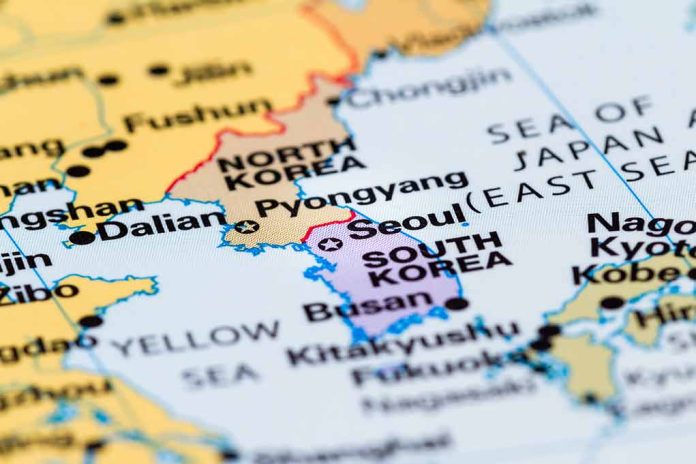
South Korean President Yoon Suk Yeol faces criminal investigation and possible treason charges for attempting to impose martial law, throwing the nation into political turmoil.
At a Glance
- President Yoon Suk Yeol under criminal investigation for attempted martial law imposition.
- The former defense minister was detained; Yoon narrowly survived impeachment.
- A travel ban was imposed on Yoon amid an ongoing probe.
- The opposition plans a new impeachment bill for December 11
- The crisis threatens South Korea’s democratic reputation and regional stability.
President Yoon’s Martial Law Attempt Sparks Crisis
South Korea’s political landscape is in upheaval as President Yoon Suk Yeol faces a criminal investigation for his attempt to impose martial law. The justice ministry has imposed a travel ban on Yoon, who is now confronting charges of treason and possible rebellion. This unprecedented situation has led to the detention of former defense minister Kim Yong Hyun, who advised Yoon on the martial law declaration.
The martial law decree was overturned by a parliamentary vote, with lawmakers physically overcoming barriers to cast their votes. Yoon narrowly survived an initial impeachment attempt after his party boycotted the vote. However, the opposition is not backing down and plans to introduce a new impeachment bill on December 11.
South Korea is experiencing one of its most profound political crises in recent history.
This turmoil follows President Yoon Suk Yeol becoming the subject of a criminal investigation due to his brief declaration of martial law last week.https://t.co/642U393T1K via @BBNTimes_en
— BBN Times (@BBNTimes_en) December 8, 2024
Public and Political Backlash
The fallout from Yoon’s actions has been swift and severe. Civilian protests are ongoing, with demonstrators demanding Yoon’s impeachment and the disbandment of his party. The main opposition Democratic Party labeled the martial law imposition as “unconstitutional, illegal rebellion or a coup.” This sentiment is echoed by many citizens who view the president’s actions as a threat to South Korea’s democratic foundations.
In response to the crisis, Yoon has apologized for the martial law decree and stated he would not avoid legal or political responsibility. However, the opposition parties are demanding more, calling for the suspension of Yoon’s powers and his arrest, along with implicated military officials.
Military and Security Implications
The attempted martial law has had significant repercussions within South Korea’s military. Military leaders have publicly stated they will refuse any future orders to impose martial law, highlighting a potential rift between civilian leadership and the armed forces. This division could have serious implications for national security and regional stability.
The crisis could potentially impact efforts to deter North Korea, with concerns about Pyongyang possibly exploiting the divisions in Seoul. This internal turmoil comes at a time when regional security issues are increasingly prominent, raising questions about South Korea’s ability to maintain its diplomatic and military commitments.
Uncertain Future for South Korean Politics
As the political crisis deepens, the path forward remains unclear. If Yoon leaves office before his term ends in May 2027, a presidential election must be held within 60 days. The ruling party’s plan to manage the crisis is still uncertain, adding to the confusion and instability. The proposal to delegate Yoon’s duties without resignation or impeachment has been criticized as unconstitutional, further complicating the situation.
“North Korea will probably take a wait-and-see approach toward these events, but it cannot be ruled out that Pyongyang will attempt to exploit divisions in Seoul,” Leif-Eric Easley, Ewha University professor, said.
This political turmoil marks one of the most significant challenges to South Korea’s democracy in recent decades. As the nation grapples with this crisis, the international community watches closely, aware of the potential ripple effects on regional stability and South Korea’s democratic reputation.
Sources
- Travel ban on South Korea’s Yoon amid investigation into his martial law decree
- South Korea prosecutors name president Yoon Suk Yeol as suspect in treason investigation
- South Korea martial law fallout deepens as President Yoon Suk Yeol targeted in criminal probe

















